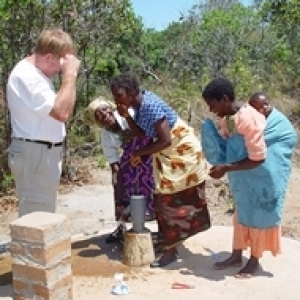Carrots, Cabbage and Beans
4th Aug 2017:
Summer School meets the Farm for Girl child project
Two years ago, I put the first part of this piece together in Addis Airport, during a four hour stop-over on my return journey from Malawi. I had gone on my own for the first time in 38 visits. Strangely, I had also made a significant decision, without Mary, to somehow enable girls to take up their places in Secondary School.
She thought I had gone totally mad as we had more or less decided that we would try and continue what we already doing, within the limits of our funding, but I’m delighted to say that it has been another wonderful decision and this year we are supporting 189 girls.
“Education is a right, but it is not a reality for too many women and girls. Education sends a message – a message of confidence and hope. It tells that child: you have a future; what you think matters.”(United Nations secretary-general’s global initiative on education 2012)
What brought us to Malawi was the issue of water. Now after twelve years, we are happy that well over half a million of the poorest have been enabled to access clean, safe drinking water. The issue of education was always a close second to water.
Since 2007 we have worked with Preschools and Primary. (my decision then)We are making a big push to enable, girls in our areas, who qualify for secondary school, to get there. Fees are a beginning, but water, hygiene and sanitary issues, may present even bigger challenges. Equality in Education is the fourth pillar of the new Sustainable Development Goals SDG (2016-2030). But stigmatising adolescent girls and women through misguided beliefs and age-old cultural practices, contributes to gender inequity and undermines basic rights.
In our tiny patch, we need to look at a comment by:(Shri Narendra Modi, Prime Minister of India Independence Day 2014): I want to make a beginning today itself and that is: all schools in India should have toilets with separate toilets for girls. Only then our daughters will not be compelled to leave schools midway”. We will now look at the state of toilets in our schools, in terms of water, privacy and hygiene. It’s a big issue but we will begin with 75 girls and women. Can YOU help? (and thankfully many people did)
Of course the girls came in large numbers, now 189, but we expect maybe up to 250 next year.
We then opted for Saturday classes and so had to organize accommodation so we converted factory space into rudimentary classrooms, hired in six of the best teachers we had worked with over the years, got seats made, then of course feeding the 189, without miracles becomes crucial as they are almost always hungry, then we had to travel miles to collect them and finally this year we have a month of Summer School.
So more transport, overnight sleeping on mats on the floor, matrons to mind them and of course tonnes of food.
There are fun and physics, games and netball and art and agriculture, films and computers.
This is all coming to the picture of the day.
Now that some girls have completed Secondary School: what will they do. Maybe one or two might qualify for the next level but fees and all the rest will end these thoughts and hopes pretty quickly, BUT we will give them a course in growing food, agriculture, horticulture, forestry and maybe when they end up a small family (that’s part of the plan) in a remote village, they will at least be able to feed them and maybe do a little business.
Who will pay for all this: I have no idea: but they will; they always do.
- 0
- 0
- Nikon COOLPIX AW130
- 1/1000
- f/2.8
- 4mm
- 125

Comments
Sign in or get an account to comment.


